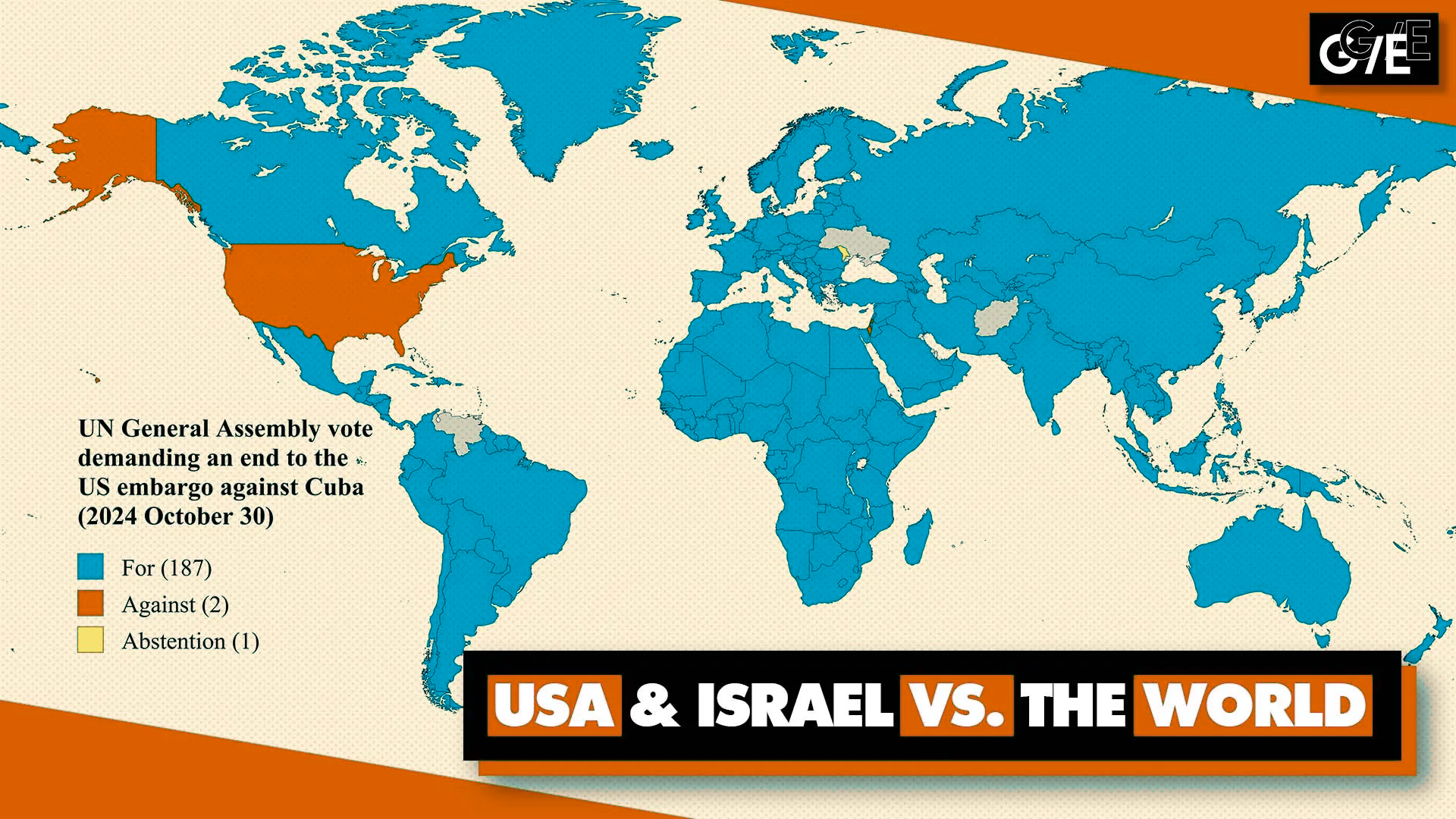The Spanish government has announced it will block two ships—Denver and Seletar—operated by shipping giant Maersk and carrying military cargo bound for Israel, from docking at the port of Algeciras. This decision comes just days after the Mask off Maersk campaign released a report exposing the company’s regular use of the Spanish port for transferring cargo that enables the ongoing genocide against Palestinians, despite Spain’s stated arms embargo.
Researchers from the Palestinian Youth Movement (PYM) and Progressive International (PI), who contributed to the report, told Peoples Dispatch that it is unclear whether Pedro Sánchez’s administration was genuinely unaware of the shipments or deliberately chose to look the other way. What is clear, however, is that since Sánchez announced the embargo in May, Maersk has succeeded in delivering thousands of tons of military cargo to Israel. It appears that Maersk typically sends one ship per week from New Jersey to Spain, carrying around 1,000 tons of military cargo destined for the Israeli military, the report states.
These shipments end up being used in Gaza, facilitating the killing, torture, and kidnapping of Palestinians. In recent months, Maersk has transported aircraft parts, armored vehicles, and projectile bodies—much of which has been essentially subsidized by US tax dollars. The shipments also included nearly 300 tons of goods labeled as “diplomatic cargo,” a classification that, according to PYM and PI researchers, is undoubtedly being used to obscure the true nature of the containers. This is one of several strategies used to evade oversight over shipments bound for Israel; others include submitting blank designations and relying on freight forwarders to mask the trace of what is being transported.
These entities, including Interglobal Forwarding Services (IFS) used by Israel, can get very creative in how they describe cargo. The Mask off Maersk report documents such practices and makes it clear that shipments bound for Israel should undergo regular oversight and inspection in order to stop ammunition and other military cargo being transported there. Between 2011 and 2014, for example, IFS managed to transport over 16,000 tons of “diplomatic” cargo on Maersk ships, according to the report. This designation appears to establish a stable supply chain of goods whose true nature remains concealed from customs authorities and the public, PYM and PI warn.
Maersk is fully aware of these operations, as well as of the nature of the cargo its ships transport, and could halt them immediately if it chose to, the report’s authors told Peoples Dispatch. However, it continues to enable this flow of deadly cargo, fueling the genocide. As a result, responsibility to block these shipments now lies with the governments of the countries whose ports are used in the transfers. Researchers noted that Morocco, Egypt, Italy, and Turkey must all be held to the same scrutiny as Spanish authorities. For instance, after being denied access to Spanish ports, the Maersk Denver sought permission to dock in Tangier, Morocco, sparking a BDS call urging local activists to mobilize and prevent this. Reports that Mediterranean ports might allow these ships to dock are deeply troubling and, moreover, stand in violation of several UN resolutions and recommendations.
The researchers emphasize that pressure must continue on the Sánchez administration until it commits to inspect every Maersk vessel originating from the US and carrying cargo to Israel, given the practices highlighted in the report. “These vessels must be blocked from docking—nothing more and nothing less,” stated PYM and PI activists.
Without grassroots pressure, governments are likely to ignore public opposition and continue allowing military cargo to flow to Israel through their logistical hubs. What’s needed now, according to the researchers, is a stronger mobilization of trade unions and workers’ actions against these shipments. For example, in October, dockworkers at Athens’ Piraeus port successfully blocked a shipment of ammunition destined for Israel.
Though such direct action triggers government repression, PYM and PI researchers argue that it remains one of the few effective ways to disrupt and halt Israel’s arms supply chain. The two Maersk ships Spain decided to block are not the only ones expected to bring more weapons to Israel—but the full list can be stopped through strong workplace mobilizations. Advocacy alone will not be enough to get the governments to act against the genocide in Palestine; only a people-led strategy, with trade unions playing a central role, can accomplish this goal.



Nazi country